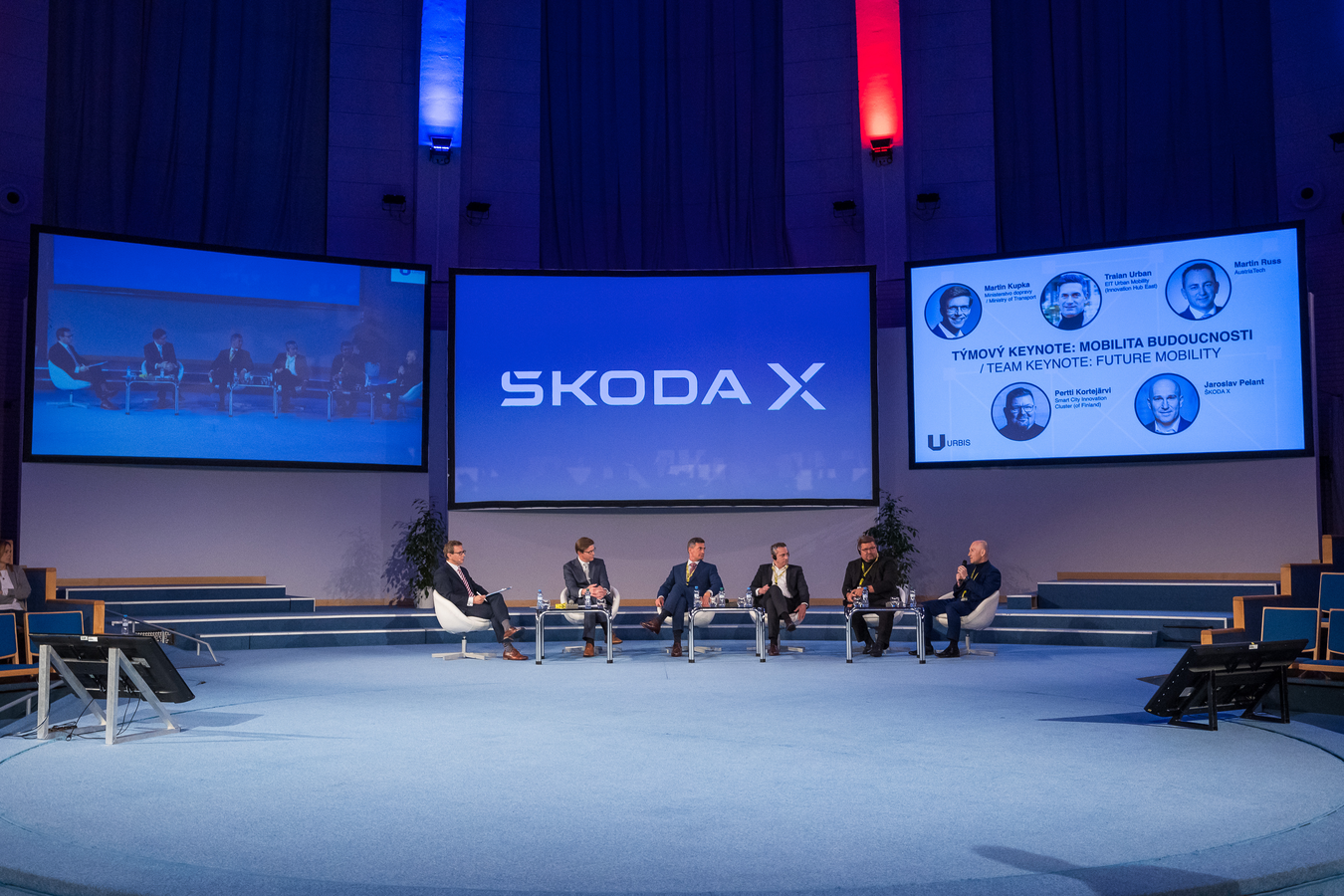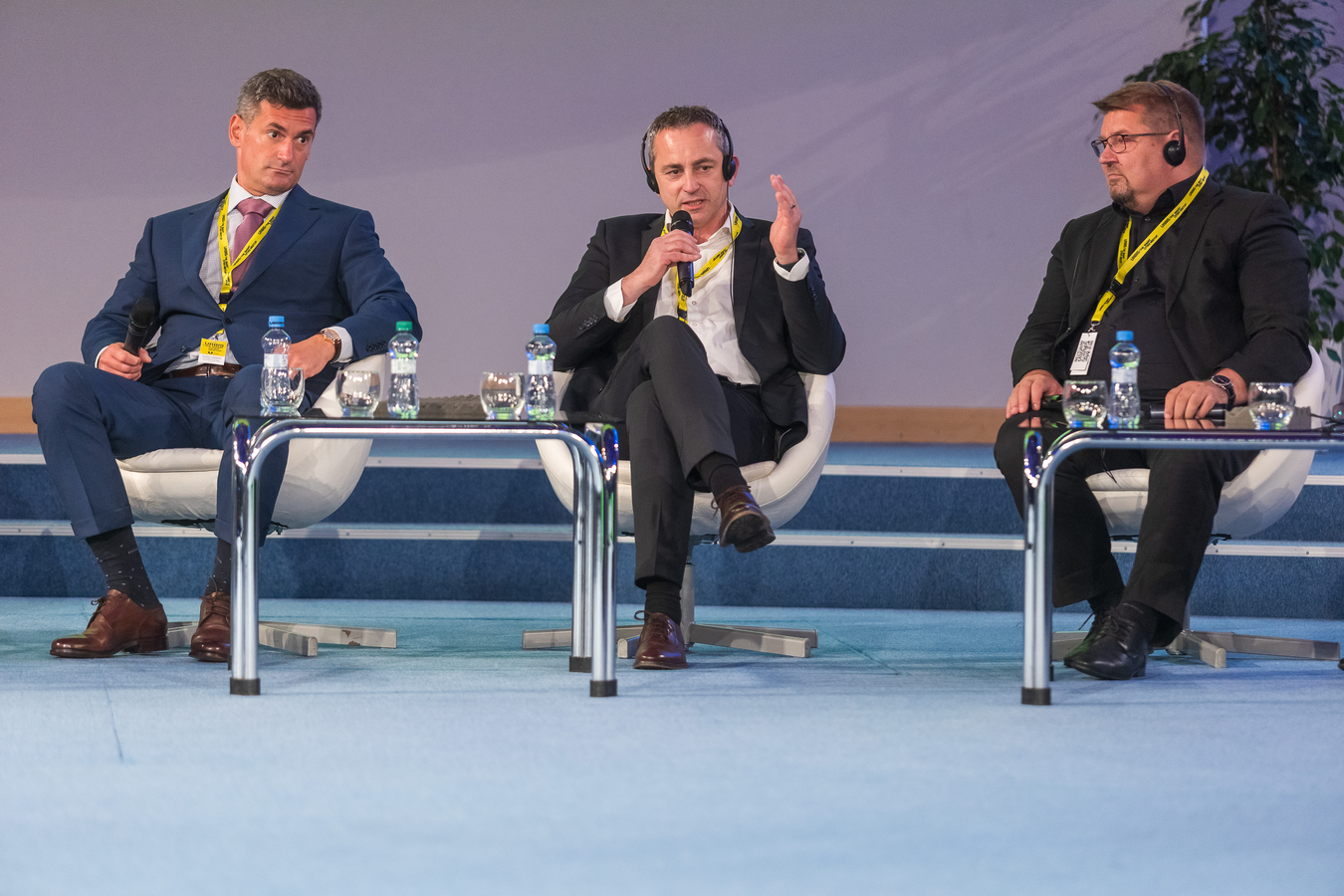Mobility of the Future. "Transportation is intrinsic to us humans," says Martin Kupka
June 5, 2024 / 9:54 AM
The panel discussion on the topic of mobility of the future, chaired by editor-in-chief of the Hospodářské noviny newspaper Jaroslav Mašek, featured, in addition to the most competent speaker, Transport Minister Martin Kupka, Traian Urban, Director of EIT Urban Mobility, Innovation Hub East, Martin Russ, CEO of AustriaTech, a representative from Finland Pertti Kortejärvi, CEO of Smart City Innovation Cluster, and Jaroslav Pelant, CEO of Škoda X.
Modern urban transport should be green, sustainable, connected and accessible. The main tools are digitisation, intermodal travel and the development of electromobility. Digitisation also acquires and combines data, which it uses for intelligent transport planning and management. Smart solutions and innovations lead to a reduction in the time users spend travelling around the city, allowing them to choose their transport mode and payment method according to their preferences, while ensuring a calm and healthy urban environment. This is the mobility of the future.
Jaroslav Pelant adds: "We have talked about static data, dynamic data, but because I want to know who the driver is, where they are going and what they are doing there, personalised data is also important. We are limited by legislation here, so we need full consent, and if I want something, I also need to offer something in return, some added value. Data are the alpha and omega for the future."
"It is important to have different kinds of solutions, it doesn't matter that it can't be implemented now, but you have the technology and when the time is right you will be ready for the future, you don't have to start over," says Pertti Kortejärvi from Finland.
Martin Russ sees the future in complexity: "We need to understand the driving powers of citizens, what makes them behave in a specific way, that's the key thing. That's the data. I think you're doing this transformation right. It's important to connect all the components, municipalities, citizens, entrepreneurs and sustainability, it has to be comprehensive in every possible way."
"We are at the Smart Cities conference, and I believe that innovation is what is important to make cities better places to live. Innovation will happen efficiently when cities, public administration, startups, entrepreneurs and academia work together. It won't be done without explaining to citizens why it is being done, how it is being done, so that there is a society-wide consensus on how the future should be strategically shaped in each city. It is not possible to implement everything in the same way everywhere," adds Traian Urban.
Martin Kupka, the Minister of Transport, had the word of conclusion: "We are talking about transport, something that is intrinsic to us humans, and in the Czech basin transport is a symbol of freedom. This is why we are so sensitive when someone tries to restrict our mobility and dictate what we should drive and how we should drive. And we're supposed to be sensitive to that. We are dealing with a lot of extremely sensitive concepts. Just the amount of data that is known about us, often very personalised. On the other hand, what we have to look at is less regulation and finding smart solutions so that we can reach the public with an offer that can and will be environmentally sensitive on top of that. This is a way that can be sustainable without having to use the tools of directives and regulations."
Use data, start calmly with small steps, and ask people what they really want. That was the conclusion of the panel discussion on the topic of Mobility of the Future.

